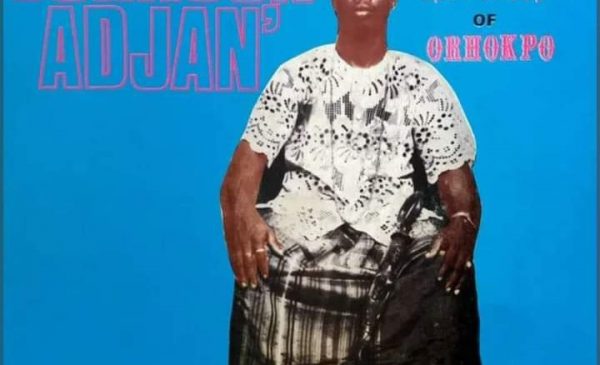By Sunny Awhefeada
The usual end of year ritual of evaluation and resolutions preoccupied my mind as I tried to draw a connection between the dying year and the new one.
My mind took to memory lane as it ambled between the year 2000 and the present moment. What assailed me were a huge void and then a stream of disillusionment in view of where we are as a nation.
The killings in Plateau State and other parts of Nigeria, the deepening poverty and general ambience of hopelessness easily indicated that we are a nation steep in depression. This is despite the usual admonitions telling us the people to make sacrifice, be patient and hopeful in anticipation of a better tomorrow.
Methinks such words should be directed at the ruling class whose mindless extravagance was crassly put on display by President Bola Tinubu as depicted in his convoy to the mosque in Lagos last Friday. The people have made more than enough sacrifice and they have been too patient for too long. It is now the turn of those who rule and ruin the nation to make sacrifices and embrace the ideals of patriotism. Only this will take Nigeria out of the doldrums and engender “renewed hope”.
The New Year pondering showed that there has been no reprieve for the people in the last twenty-four years. We have been swindled by one mountebank after the other. So, we are marooned in hopelessness.
It was in the foregoing mood that I heard that the Urhobo music maestro, Johnson Osetejovwore Oyibode Adjan, was eighty years old on 2nd January, 2024! I was thrilled and the gloom that often characterizes thoughts of Nigeria was displaced by the excitement of not just knowing that Johnson Adjan has made it to eighty, but also by the memory of the unique and enchanting aesthetics of his pulsating and profoundly philosophical music.
I don’t know how he spent the day, but it was an exciting moment for me as I played his songs most of that day and the next.
I also told a few friends I interacted with that day that it was Johnson Adjan’s birthday. Adjan caught the imagination of my generation in the early 1980s when we were still primary school pupils. The meaning of his songs at that age was lost on us, but the beauty of its lyric, its capacity to make you want to sing along or do a jig, the clarity and sonority of his voice were unparalleled.
From Ibadan to Evwreni, which my childhood straddled, the songs of Johnson Adjan dominated the music diet in every Urhobo household. Growing up and becoming adults, able to look the world in the face and interrogate its many oddities, the songs of Johnson Adjan made meaning to us.
We embraced its philosophy, memorized its poetry, relished its lyrics and danced to its beats. The many proverbs, legends and myths which populate his songs lit up our paths in the quest for Urhobo indigenous knowledge system. His songs validated the philosophical integrity of Urhobo worldview.
The Igbe religion, of which Adjan is an adherent, is central to his person and music and this is reflected in the invocative “Onime me ra suare”. Ever beholding to Uhaghwa and Aridon, the Urhobo gods of inspiration and memory, Johnson Adjan’s music can be viewed as a creative rendition of Urhobo culture.
Embedded in this are features which attest to the existence of a rich loric repertoire spanning poetry, philosophy, psychology, sociology, history and more. My earliest academic evaluation of the music of Johnson Adjan was as a subaltern don in 2002 when I supervised a Bachelor of Arts degree project by one Sohwo whose first name I cannot now remember. I was excited at the topic focusing on Adjan’s music and we went to work. I had to endlessly play his tracks to ascertain if they were worth critical evaluation.
The songs proved to avant garde in many ramifications. Besides their thematic aptness which speaks to almost every aspect of Urhobo life, the songs were enlivened with satirical insinuations, metaphors, imageries, ironies, hyperboles, euphemism, puns and other sound devices.
His voice was enchanting and his diction was rich, profound and insightful. Motifs in Adjan’s songs include marriage, friendship, wealth, envy, death, change and other vagaries that define the human experience. Morality remains the grand theme of his music. And I must confess that much of my education and knowledge of Urhobo derives from Adjan’s music.
Many of Adjan’s songs are admonitory and offer counseling to people. I think his song that I first heard was “Somodudi” where he cautioned against reckless drinking and its consequences.
Although, in another track “Idi Me”, Adjan positivized drinking and encourages good drinking habit among children so that at one’s death the children’s friends would celebrate by drinking. In “Wosoma Olorogun” he satirized the rush to acquire chieftaincy titles by those not materially prepared for it. That album contains “Iroroturi” which raises ontological questions challenging the essence of destiny and wealth. The crooner laments and questions why the poor man remains poor even after putting in the same effort into the same task as the wealthy man.
In “Omoromuoseje” the singer mocks the lover who gets the praise of the mother-in-law to-be even though he got indebted buying gifts for the girl’s family. There is also “Aye me nu vwobo” where Adjan touches the problem of divorce and its resolution. The tracks “Mr. Onororakpene” and “Madam Oti” are two love songs in one which lament the death of Joseph Onororakpene from Okurekpo near Okpara-in-land. Of significance in the elegy is the love and devotion of Madam Oti. In “Ilovu gbo we Ishani”, Adjan privileges the theme of love in its sublime essence. His songs, if properly curated, should number more than a hundred and they have attained archival status. And the fact that each of them is a hit attests to his musical genius.
At eighty, like many culture exponents, Johnson Adjan appears abandoned and struggling to survive on the periphery.
The massive fan base that was enchanted by his songs in Urhoboland, Ibadan, Lagos, Kaduna, Accra, New York, London and anywhere Urhobo people were found is fast diminishing as the present “miguo” generation neither speak Urhobo nor appreciate his songs.
Nevertheless, Adjan has been lucky for two reasons. His songs ruled the waves and peaked for more than three decades at a time when Chiefs Michael Ibru, James Edewor, Edward Esiso, the business moguls, could sing and dance to them; when Professors Peter Ekeh, Onigu Otite and G. G. Darah, redoubtable scholars, could ponder over their historical, philosophical and aesthetic merits, and Chiefs Patrick Bolokor, Felix Ibru and James Ibori, political heavyweights, could identify with his songs and do the needful. Adjan has also lived long and in good health.
Those before him and his contemporaries were not so lucky with long life and sound health. Adjan, resident in Ughelli, is probably the second oldest Urhobo musician after Chief Diamond Icheghe.
Johnson Adjan later took on the honorific of Professor and he became Professor Johnson Adjan the Ogburine (song-warrior). An indigene of Ofuoma-Ughelli, he was born on 2nd January 1942 at Afiesere his maternal community. His family lived at Orhoakpor and he followed his parents to the Igbe-Ame sect where the rites and songs of worship influenced his music.
Adjan admits that Chiefs Omokomoko Osokpa and Djanere, foremost Urhobo musicians, were his mentors. The internationalization of his bardic calling began in 1970 when he visited London for the first time to perform before an Urhobo audience. Adjan’s name and music oeuvre is making inroads into academe.
Much of Dr. Peter Udi’s recent University of Ibadan doctoral thesis focused on the psychotherapeutic essence of Adjan’s songs. Let us salute Professor Johnson Adjan, the Ogburine, and Urhobo treasure, at eighty! As we do this, let us reach out to him and support him. Isi wadooo….iyaaa….!





